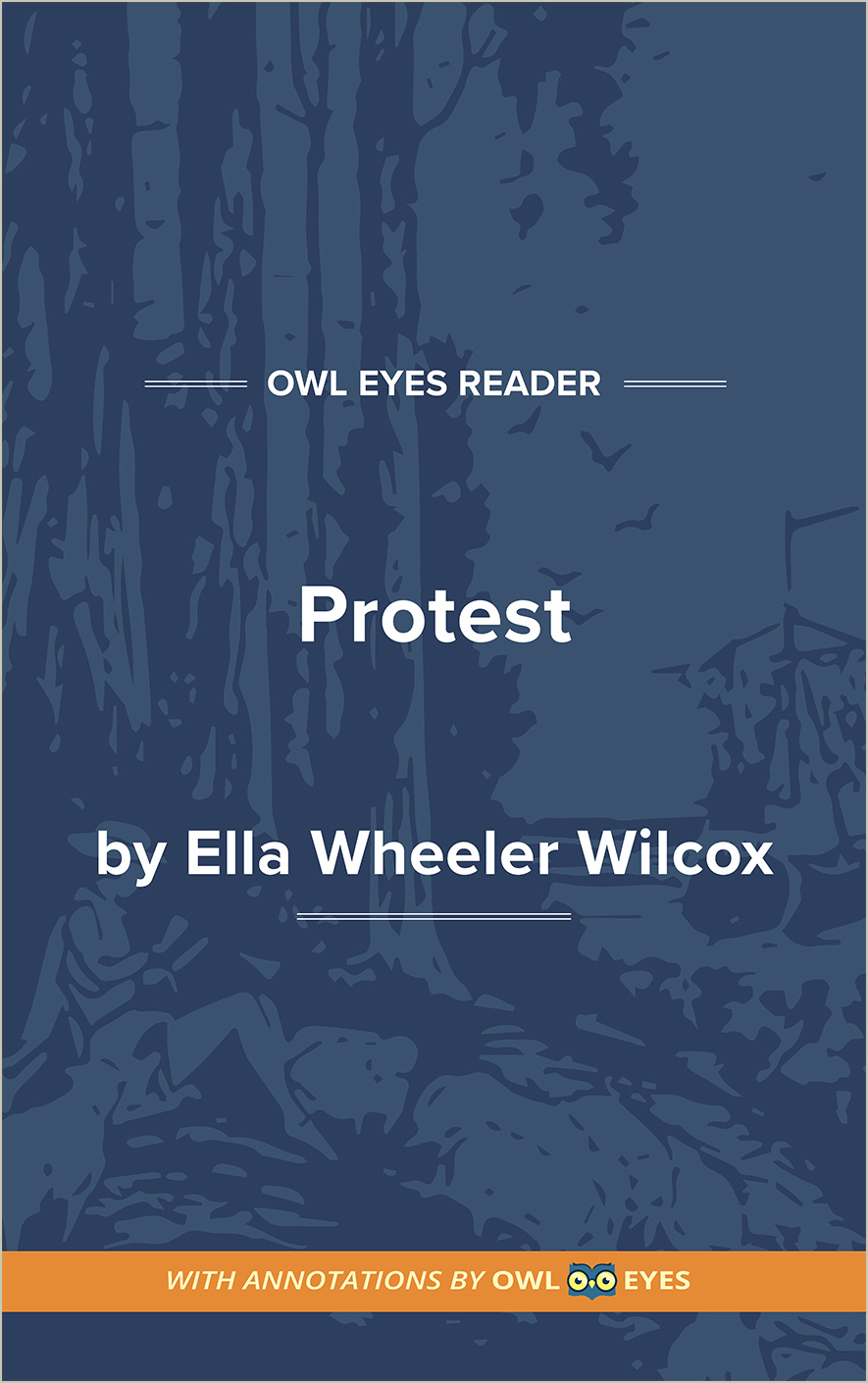Analysis Pages
Themes in Protest
Themes Examples in Protest:
Text of the Poem
🔒"man..." See in text (Text of the Poem)
"fettered..." See in text (Text of the Poem)
"purchase ease for idle millionaires..." See in text (Text of the Poem)
"children and childbearers..." See in text (Text of the Poem)
"Call this the land of freedom..." See in text (Text of the Poem)
"men..." See in text (Text of the Poem)
"manacled..." See in text (Text of the Poem)
"Call no chain strong, which holds one rusted link. ..." See in text (Text of the Poem)
"Therefore I do protest against the boast Of independence in this mighty land...." See in text (Text of the Poem)
"The lawlessness of wealth-protecting laws..." See in text (Text of the Poem)
"Press and voice may cry..." See in text (Text of the Poem)
"our..." See in text (Text of the Poem)
"The human race Has climbed on protest...." See in text (Text of the Poem)
"To sin by silence, when we should protest, Makes cowards out of men...." See in text (Text of the Poem)

